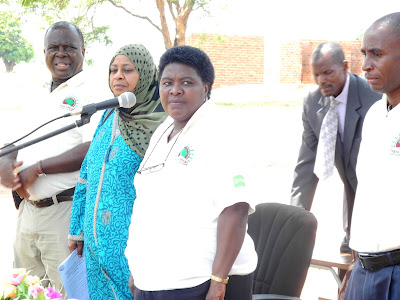 |
| Bulawayo City Hall |
I am sitting at the balcony of the hotel we checked into late last night here in Bulawayo, Zimbabwe. It is about half past six in the morning but like l mentioned before, it looks like 8am in Nairobi.
The morning is chilly but there are sun rays that are teasing their way through the heavy clouds.I don't know if they will tease enough to scare the clouds into some sort of retreat.
From where l sit, l grin knowingly. This could be anywhere in Africa.
Straight ahead on my right there is what seems like a taxi man who is calling out to passengers going to a certain place in the city. The drivers are hooting as the conductors try to convince the potential passengers to get into the cars. Just down the road on my left is a petrol station that is still closed.
As the ravens at two roof tops away peck at some grains l can’t help but marvel at how different countries in Africa can have such similarities.
Last night when we got in there was no food at the hotel and we had to go find something to bite. ‘Is it safe?’ You knew that question was coming. ‘Oh yes it is. You don’t need to worry,’ the receptionist had assured us. He was kind enough to direct us to a good take away place. No not a fast food place but a take away place with good homemade food. I have found out that that is very different. In most places we have been to take aways are usually associated with fast foods. Here we found out that these places with homemade take away foods are popular.
At 10pm they were still open and we had to queue. As l waited in line, l chatted with the owner and he told me he lived in Nairobi a while ago. I then told him why we were visiting Zimbabwe and l went into all-about-the-Trans African Caravan of Hope event speech. Hmm! Something l have done during border crossings especially in Tanzania, Malawi and Zimbabwe. So back here at the balcony in Bulawayo l can see that the traffic is picking.
Bulawayo is the second largest city in Zimbabwe after the capital city Harare. It is estimated that there are about 1million people who live here. This is city is multicultural whose residents speak at least 3 languages including English. These are Ndebele, Xhosa, Kalanga, Sotho, Nambay, Tonga and Venda. The Majority of this city’s population belongs to the Ndebele ethnic and language group. Bulawayo is considered at the industrial and business capital of Zimbabwe. That little brief from Wikipedia can work for you for now.Smile.





